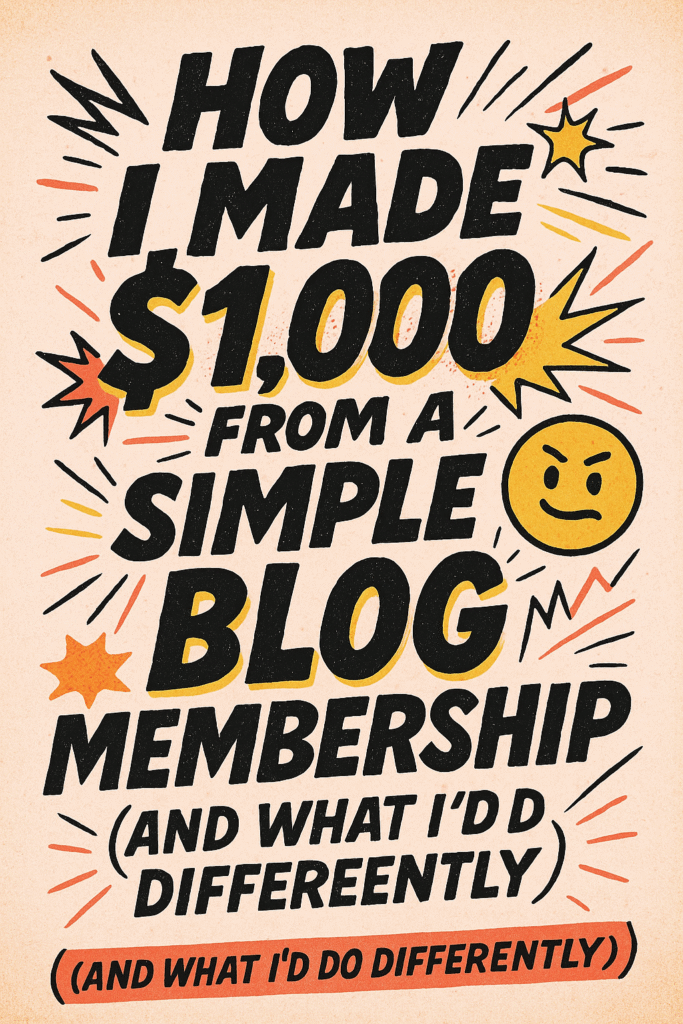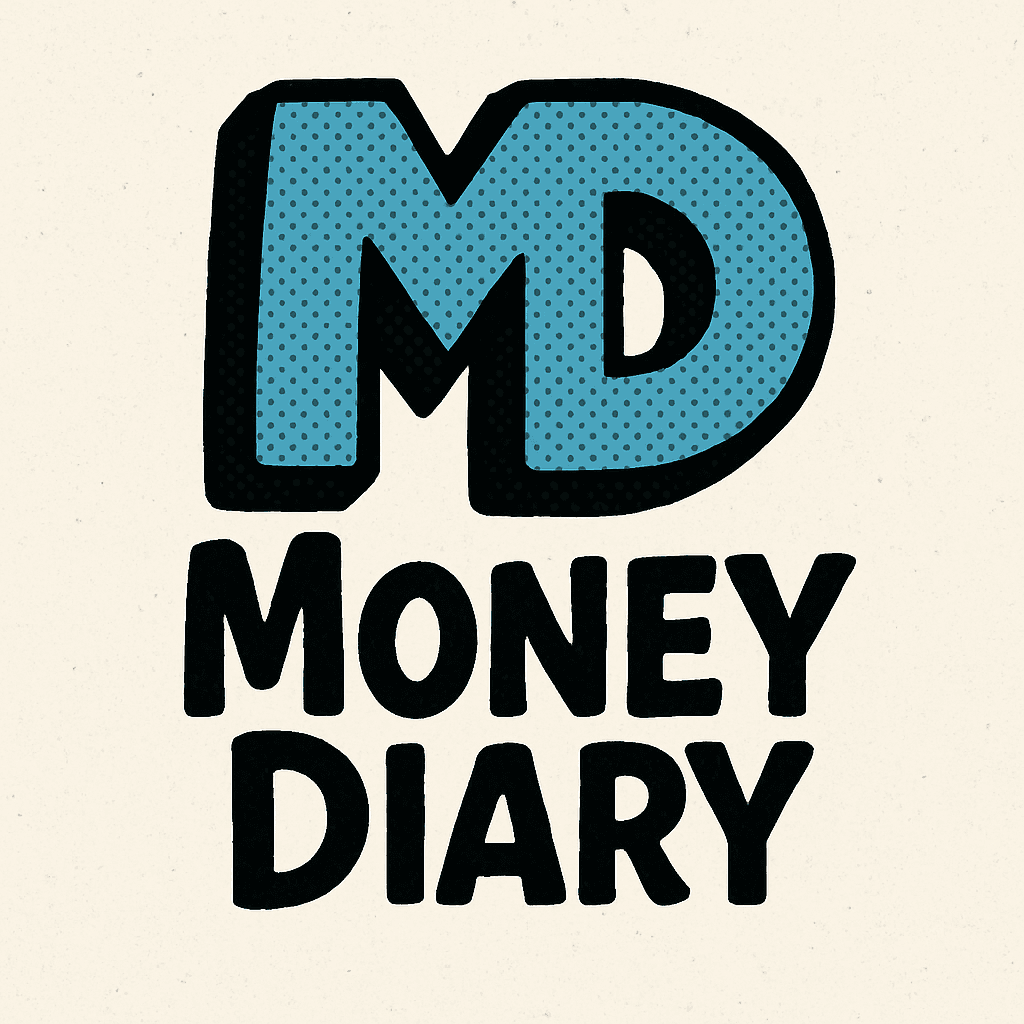
Stop Trading Hours for Dollars — Build a Business That Pays You Monthly
Quick Summary / Key Takeaways
- Membership sites generate predictable recurring revenue instead of one-time sales
- MemberPress is the most reliable WordPress plugin for membership functionality
- Offer annual memberships with bonuses to improve cash flow and reduce churn
- Digital content has incredible profit margins – create once, sell repeatedly
- 1,000 members at $15/month = $180,000 annual recurring revenue
- Layer in premium tiers, quarterly bonuses, and live elements to maximize value
Membership Revenue Snapshot
| Membership Tier | Monthly Price | Annual Savings | Potential Monthly Revenue (100 members) |
|---|---|---|---|
| Basic Plan | $15 | 2 months free | $1,500 |
| Premium Plan | $25 | 2 months free | $2,500 |
| VIP Plan | $50 | 3 months free | $5,000 |
Membership Plugin Comparison
| Plugin | Basic Cost | Best For | Payment Integration | Content Protection |
|---|---|---|---|---|
| MemberPress | $179/year | Reliability + features | Stripe, PayPal | Excellent |
| Paid Memberships Pro | Free + extensions | Budget-conscious | Multiple options | Good |
| WooCommerce Memberships | $199/year | E-commerce focus | WooCommerce only | Excellent |
| Restrict Content Pro | $99/year | Simple setups | Stripe, PayPal | Good |
Membership Launch Checklist
Pre-Launch Setup
- [ ] Choose your niche and validate demand with existing audience
- [ ] Install and configure MemberPress (basic plan sufficient)
- [ ] Set up Stripe or PayPal for payment processing
- [ ] Create 2-3 months of content before launching
- [ ] Design simple member dashboard and login area
- [ ] Write sales page explaining member benefits clearly
Member Retention Checklist
Ongoing Growth Actions
- [ ] Offer annual memberships with 2+ months free
- [ ] Create quarterly bonuses (live Q&As, bonus content, group sessions)
- [ ] Bundle memberships with complementary products (ebooks, courses)
- [ ] Survey members regularly for content requests
- [ ] Set up automated welcome sequences for new members
- [ ] Plan member-only events or demonstrations
Introduction
So I thought, what if I created a simple recipe membership? Nothing fancy – just 4-5 new, tested recipes every month that members could access before anyone else.
I set up MemberPress on my WordPress site, created a basic membership at $9.99/year (I kick myself for not making it $10/month), and quietly mentioned it in a blog post.
100 people signed up at launch.
That’s $1,000 from people willing to pay for exclusive access to my recipes. Not bad for a simple idea.
Why Even Small Membership Revenue Matters
Here’s what I learned: Digital products have incredible margins. Once I created those recipes, the delivery was automatic. No shipping. No inventory. No customer service headaches.
Even though I priced it too low at $9.99/year, that $1,000 launch taught me the power of recurring revenue models. People were willing to pay upfront for exclusive access to content they valued.
I only offered one membership level, but looking back, I should have created monthly pricing and premium tiers. Some members would have gladly paid monthly for extra perks like live cooking demonstrations or quarterly bonus cookbooks.
The membership ran for about a year before I moved on to other projects, but it showed me how powerful the membership model could be when priced correctly.
Recurring Revenue Is the Gold Standard
If you can get 1,000 people to sign up at $15/month, that’s $180,000 in annual recurring revenue. Even 500 members is $90,000 per year.
Compare that to selling $50 courses where you need constant new launches, affiliate promotions, and fresh marketing campaigns. Membership revenue compounds – every month you keep existing members AND add new ones.
In this guide, I’ll show you exactly how to:
- Choose the right membership plugin and set it up properly
- Structure your content delivery for maximum retention
- Price your membership for profitability and growth
- Create irresistible annual membership offers
- Build premium tiers that members actually want
- Use bonuses and events to reduce churn and attract new members
This isn’t about building a complicated membership empire. It’s about turning your existing expertise into predictable, growing monthly income.
Let’s build your membership site.
Table of Contents
Why should you start a membership site instead of selling courses?
Direct Answer: Membership sites create predictable recurring revenue instead of the feast-or-famine cycle of course launches.
Revenue Reality: With courses, you’re constantly launching, marketing, and starting over. With memberships, you build once and earn monthly. My recipe membership generated $2,700/month consistently, while my course sales fluctuated wildly between $500 and $8,000 per month depending on launches.
Real Experience: The psychological difference is huge. Knowing I had guaranteed recurring revenue let me focus on creating better content instead of constantly worrying about the next sale. Members also feel more invested – they’re not just buying a course and disappearing, they’re part of an ongoing community.
Business Sustainability: Membership revenue compounds. Month 1 you might have 50 members. Month 12 you might have 400 members, all paying monthly. With courses, you start at zero revenue every single month unless you’re launching something new.
Takeaway: Recurring revenue gives you business stability and lets you focus on serving customers instead of constantly finding new ones.
Which membership plugin is actually worth the investment?
Direct Answer: MemberPress. I tested several options, and it’s the most reliable for protecting content and processing payments smoothly.
Plugin Comparison from Experience: I tried Paid Memberships Pro (too many moving pieces), WooCommerce Memberships (overkill for simple content), and Restrict Content Pro (limited features). MemberPress just worked. The basic plan at $179/year handles everything most bloggers need.
Technical Reality: MemberPress integrates seamlessly with Stripe and PayPal, protects your member content reliably, and has clean member dashboards that don’t confuse people. The support is actually helpful when you hit snags during setup.
Setup Simplicity: Installation took me about 2 hours including payment setup. The learning curve is manageable – you can have a basic membership running the same day you install it. More complex plugins often require days of configuration and troubleshooting.
Takeaway: Pay for MemberPress and avoid the headaches. The time you save troubleshooting cheaper alternatives is worth the investment.
What type of content works best for membership sites?
Direct Answer: Fresh, actionable content delivered consistently. Think recipes, templates, tutorials, or exclusive insights your audience can’t get anywhere else.
Content Strategy: My recipe membership worked because people knew they’d get 4-5 new, tested recipes every month. The key was “new” – not repurposed blog content, but exclusive member-only recipes they couldn’t find elsewhere. This gave them a reason to stay subscribed.
Successful Content Types: Step-by-step tutorials, templates and worksheets, behind-the-scenes content, member-only interviews, early access to blog posts, downloadable resources, or curated recommendations. The content should feel valuable enough that members would miss it if they canceled.
Delivery Method: I uploaded new recipes directly to the member area each month – no complex drip scheduling needed. Simple is better. Members could access everything immediately, which felt more valuable than artificial scarcity.
Takeaway: Focus on exclusive, useful content delivered predictably rather than trying to create massive libraries of mediocre material.
How do you price your membership for maximum revenue?
Direct Answer: Start with $15-25/month for basic memberships. This hits the sweet spot between accessibility and serious commitment from members.
Pricing Psychology: $15/month feels reasonable to most people – less than a few coffees – but it’s high enough that members take it seriously. Looking back, I priced my recipe membership at $9.99/year, which was way too low. I should have done $10/month instead – that pricing mistake still bothers me.
Annual Membership Strategy: Offer 2-3 months free for annual payments. If your monthly is $15, make the annual $150 (saving them $30). This improves your cash flow dramatically and reduces monthly churn. About 40% of my members chose annual payments, which was huge for business stability.
Revenue Math: 500 members at $15/month = $90,000/year. 1,000 members = $180,000/year. Even if 30% choose annual payments, you’re getting significant cash injections that help fund business growth and personal stability.
Takeaway: Price for value, not desperation. Members who pay appropriately tend to engage more and stay longer.
Should you offer multiple membership tiers?
Direct Answer: Yes, but start simple. Launch with one tier, then add premium options based on what members actually request.
Tier Strategy: I only offered one membership level initially, but I should have created a premium tier at $25-35/month. Some members asked for live cooking demos, bonus cookbooks, and direct access to me for questions. That’s easily worth the premium pricing.
Effective Tier Structure: Basic ($15): Monthly recipes and member access. Premium ($25): Everything in basic plus quarterly live Q&As, bonus ebooks, and member-only Facebook group. VIP ($50): Everything plus one-on-one monthly calls or personalized meal planning.
Implementation Timing: Launch with one tier to keep things simple. After 3-6 months, survey your members about what additional value they’d want. Then create premium tiers based on their actual requests, not your assumptions.
Takeaway: Multiple tiers can significantly increase your average revenue per member, but only if the value is genuinely different and valuable.
How do annual memberships improve your cash flow?
Direct Answer: Annual members pay upfront, giving you immediate cash flow and reducing the monthly churn anxiety that kills membership sites.
Cash Flow Impact: When someone pays $150 upfront instead of $15/month, you get working capital immediately. This helps fund content creation, marketing, and business investments without waiting for monthly payments to accumulate.
Churn Reduction: Annual members rarely cancel mid-year – they’re financially committed. Monthly members might cancel impulsively after a busy month or forgotten payment. About 70% of my annual members renewed compared to 60% monthly retention.
Bundling Opportunities: Package annual memberships with complementary products. “Get 12 months of recipes PLUS my meal planning ebook and exclusive cooking masterclass for $150.” This increases perceived value and justifies the upfront payment.
Takeaway: Annual memberships provide business stability and higher member lifetime value. Always offer them with meaningful savings.
What bonuses keep members engaged long-term?
Direct Answer: Quarterly live events, exclusive bonuses, and member-only community access. The key is making canceling feel like they’re missing out on something special.
Bonus Strategy: I should have done quarterly live cooking demonstrations with Q&A sessions. Even if only 30% of members attended live, everyone would have access to recordings. This creates ongoing value beyond the monthly recipes.
Community Elements: Private Facebook groups or member forums where people can share results, ask questions, and connect with each other. Community creates stickiness – people stay for the relationships as much as the content.
Surprise Bonuses: Occasional unexpected perks like guest expert interviews, bonus recipe collections, or early access to new products. These “surprise and delight” moments make members feel special and increase word-of-mouth referrals.
Takeaway: Members stay for consistent value plus occasional surprises. Plan quarterly bonuses to give people reasons to stick around.
How do you bundle memberships with other products?
Direct Answer: Package your membership with related digital products, courses, or live sessions to increase the perceived value and justify higher prices.
Bundle Examples: “Recipe Membership + Meal Planning Masterclass + Quarterly Live Cooking Sessions = $197/year” instead of selling each separately. The bundle feels like a complete solution rather than piecemeal purchases.
Cross-Selling Opportunities: Offer existing course customers a discounted membership upgrade. “You loved the course – now get monthly updates for just $10/month (normally $15).” This turns one-time buyers into recurring revenue.
Launch Strategy: When announcing your membership, bundle it with an existing popular product. “For the next week only, get my bestselling meal prep ebook FREE when you join the recipe membership.” This helps overcome the initial signup hesitation.
Takeaway: Bundles increase perceived value and make the membership feel like part of a comprehensive solution, not just another monthly expense.
What if people cancel or don’t sign up?
Direct Answer: Expect 20-30% monthly churn initially. Focus on improving content quality and member experience rather than desperately trying to save every cancellation.
Churn Reality Check: My recipe membership had about 25% monthly churn, which is normal. Some people try it for a month or two and decide it’s not for them. Don’t take it personally – focus on the members who love what you’re creating.
Signup Hesitation Solutions: Offer a 7-day free trial or money-back guarantee for the first month. Lower the risk of trying your membership. Also, create a detailed FAQ addressing common concerns about value, cancellation process, and what exactly they’ll receive.
Retention Improvements: Survey canceled members (briefly) to understand why they left. Common reasons: too expensive, not enough time to use content, or content wasn’t what they expected. Address these issues in your marketing and content strategy.
Takeaway: Some churn is inevitable and healthy. Focus on attracting and retaining ideal members rather than trying to please everyone.
Advanced Tips / Best Practices
Content Creation Efficiency
- Batch create 2-3 months of content at once to stay ahead of delivery schedules
- Repurpose popular blog content into exclusive member versions with additional details
- Survey members quarterly about content requests to ensure you’re creating what they actually want
- Create templates and systems for consistent content delivery without burning out
Technical Optimization
- Set up automated email sequences welcoming new members and explaining how to access content
- Use member-only Facebook groups or forums to build community and reduce churn
- Create mobile-friendly member dashboards since many people access content on phones
- Set up analytics to track which content gets the most engagement and create more similar material
Revenue Maximization
- Test different price points every 6 months for new members while grandfathering existing members
- Create affiliate programs where satisfied members can earn commissions for referrals
- Offer corporate or family plan discounts for multiple memberships
- Partner with complementary businesses for cross-promotional membership swaps
Where to Learn More
If you want step-by-step tutorials, member site templates, and proven strategies to launch your first membership, Click here to get additional resources on Money Diary.
Wrap-Up / Next Steps
Membership sites aren’t just another income stream – they’re business stability.
Recurring revenue lets you plan, invest, and build without the constant pressure of finding new customers every month.
Start This Week:
- Choose your membership focus and validate it with your existing audience
- Install MemberPress and set up basic payment processing
- Create 2-3 months of content before launching
- Write a simple sales page explaining member benefits
Launch This Month:
- Soft launch to your email list with early bird pricing
- Offer annual memberships with bonuses from day one
- Set up member onboarding and welcome sequences
- Plan your first quarterly bonus or live event
Scale This Quarter:
- Survey members about premium tier interest
- Create referral incentives for existing members
- Test different pricing and bonus combinations
- Build systems for consistent content creation
Remember: 500 members at $15/month is $90,000/year in recurring revenue. That’s life-changing money for most bloggers, and it’s completely achievable with consistent effort and valuable content.
Stop trading hours for dollars. Start building monthly recurring revenue.
Click here for my membership site templates, pricing calculators, and launch checklists.
About the Author
Kelly Bejelly has been building online businesses for 14+ years, starting with food blogging in the early 2010s before “influencer” was even a thing. She’s the traditionally published author of Paleo Eats, has been featured in Forbes and Essence, co-founded and sold multiple digital businesses including a SaaS company, and co-founded a CPG brand that appeared on Shark Tank.
Kelly launched Money Diary to share the real, unfiltered truth about making money online—no fluff, just strategies that actually work based on over a decade of experimenting, failing, and succeeding.





Leave a Reply